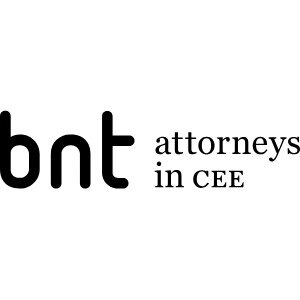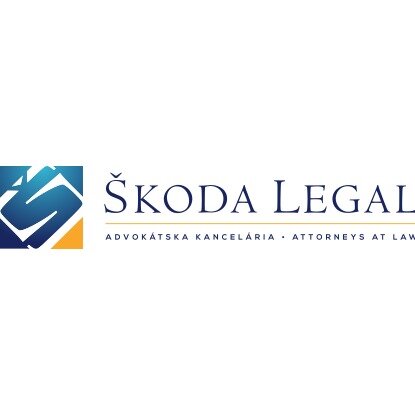Best Bankruptcy & Debt Lawyers in Slovakia
Share your needs with us, get contacted by law firms.
Free. Takes 2 min.
Or refine your search by selecting a city:
List of the best lawyers in Slovakia
About Bankruptcy & Debt Law in Slovakia
In Slovakia, Bankruptcy & Debt law is designed to help individuals and businesses manage unsustainable financial liabilities. This branch of law provides mechanisms for restructuring or discharging debts, potentially allowing for a fresh financial start. The primary legislative framework is governed by the Act on Bankruptcy and Restructuring, which outlines various processes for declaring bankruptcy, restructuring debt, and satisfying creditors' claims.
Why You May Need a Lawyer
Legal expertise in Bankruptcy & Debt is crucial for navigating the complex procedures and regulations involved. Common situations where legal help may be necessary include:
- Filing for personal or corporate bankruptcy.
- Negotiating with creditors or debt collectors.
- Insolvency proceedings and restructuring plans.
- Understanding your rights and obligations under Slovakian debt law.
- Disputing wrongful claims or managing fraudulent debts.
A lawyer can help ensure compliance with legal requirements, protect your assets, and advocate for your interests throughout the process.
Local Laws Overview
Key aspects of Slovak bankruptcy and debt laws include:
- Types of Bankruptcy: Slovak law distinguishes between personal bankruptcy (for individuals) and corporate bankruptcy (for businesses). Each type has specific eligibility criteria and procedures.
- Restructuring: This process allows businesses to reorganize their debts and continue operations. It's often considered as an alternative to liquidation.
- Insolvency Threshold: The law defines insolvency as the inability to pay obligations within 30 days of their due date.
- Administrative and Judicial Process: Bankruptcy and restructuring proceedings generally involve both administrative and judicial review to ensure fair treatment of creditors and compliance with legal standards.
Frequently Asked Questions
How does one declare bankruptcy in Slovakia?
To declare bankruptcy, you must file a petition with the relevant district court, along with documentation that demonstrates insolvency and inability to meet financial obligations.
What is the difference between bankruptcy and restructuring?
Bankruptcy typically involves liquidating assets to pay creditors, whereas restructuring aims to develop a plan to repay debts while continuing operations.
Can individuals file for bankruptcy in Slovakia?
Yes, individuals can file for personal bankruptcy if they meet certain criteria, including insolvency and inability to repay debts.
What happens to personal assets during bankruptcy?
Assets are assessed and may be liquidated to satisfy creditors' claims, although some assets may be protected by exemptions.
How long does the bankruptcy process take in Slovakia?
The duration varies depending on the complexity of the case, but bankruptcy proceedings typically take several months to a few years.
Are there alternatives to bankruptcy for individuals?
Yes, alternatives include debt consolidation, negotiations with creditors, or seeking a restructuring arrangement.
What are the consequences of declaring bankruptcy?
Consequences can include loss of assets, impact on credit history, and restrictions on business operations, depending on the specific case.
Can a bankruptcy filing be contested?
Yes, creditors or other stakeholders may contest a bankruptcy filing if they believe it does not meet legal requirements or presents inaccuracies.
Is legal representation mandatory during bankruptcy proceedings?
While not mandatory, it is highly recommended to have legal representation to navigate the complexities of bankruptcy law effectively.
What role do creditors play in bankruptcy cases?
Creditors can file claims, challenge proceedings, and participate in meetings to discuss repayment plans or restructuring proposals.
Additional Resources
For further assistance, consider reaching out to:
- Ministry of Justice of the Slovak Republic: Offers insights and resources on bankruptcy laws.
- Slovak Bar Association: Provides a directory of qualified legal professionals specializing in bankruptcy and debt.
- Financial Consultancies: Many organizations offer advice on managing debt and financial planning to avoid bankruptcy.
Next Steps
If you require legal assistance in Bankruptcy & Debt matters, consider taking the following steps:
- Consult with a Bankruptcy Lawyer: Find a lawyer specializing in bankruptcy law to discuss your situation and explore your options.
- Gather Financial Documentation: Prepare financial statements, debt records, and any relevant documentation to assist your lawyer in assessing your case.
- Consider Your Options: With legal guidance, evaluate whether bankruptcy, restructuring, or alternative solutions are most appropriate for your financial situation.
- Stay Informed: Keep updated on legal requirements and proceedings to ensure compliance and a smoother process.
Lawzana helps you find the best lawyers and law firms in Slovakia through a curated and pre-screened list of qualified legal professionals. Our platform offers rankings and detailed profiles of attorneys and law firms, allowing you to compare based on practice areas, including Bankruptcy & Debt, experience, and client feedback.
Each profile includes a description of the firm's areas of practice, client reviews, team members and partners, year of establishment, spoken languages, office locations, contact information, social media presence, and any published articles or resources. Most firms on our platform speak English and are experienced in both local and international legal matters.
Get a quote from top-rated law firms in Slovakia — quickly, securely, and without unnecessary hassle.
Disclaimer:
The information provided on this page is for general informational purposes only and does not constitute legal advice. While we strive to ensure the accuracy and relevance of the content, legal information may change over time, and interpretations of the law can vary. You should always consult with a qualified legal professional for advice specific to your situation.
We disclaim all liability for actions taken or not taken based on the content of this page. If you believe any information is incorrect or outdated, please contact us, and we will review and update it where appropriate.
Browse bankruptcy & debt law firms by service in Slovakia
Slovakia Attorneys in related practice areas.
Browse bankruptcy & debt law firms by city in Slovakia
Refine your search by selecting a city.












